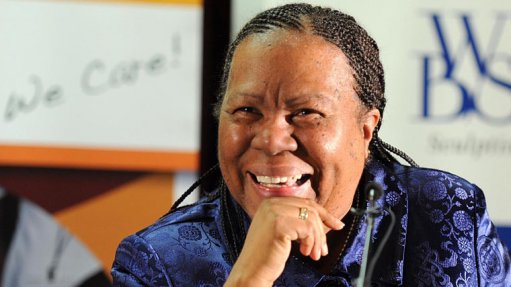
Science and Technology Minister Naledi Pandor
The African continent had to move away from being a “client” in terms of accessing scientific information to rather having customers coming to the continent to access its information, Science and Technology Minister Naledi Pandor said on Monday.
Speaking at the opening of the tenth African Association of Remote Sensing of the Environment conference, in Johannesburg, the Minister noted that while Organisation for Economic Cooperation and Development (OECD) countries still dominated the space economy, times were changing.
“The Brics countries [which comprises Brazil, Russia, India, China and South Africa] have invested substantially in recent years. India, China and Russia are now leading contributors to the space economy. Now it's Africa's turn. We have to talk about space, coordinate our activities and invest for the future,” she said.
Pandor stated that, for Africa to catch up with OECD countries, African governments and relevant institutions had to increase investment in and awareness of the use of space in decision-making processes.
“We must stimulate an African dialogue on the use of space for development,
building African capacity in science and technology, and promoting continental coordination of space activities,” the Minister said.
She added that the dialogue, to date, had started yielding some positive results with space agencies having been established in various African countries, including South Africa, in recent years.
Further, an African Space Policy and Strategy was being developed by the African Union Commission through the African Ministers Committee on Science and Technology, and continental initiatives such as the Pan African University for Space Science and Technology and AfriGEOSS had been established.
She explained that AfriGEOSS aimed to strengthen the link between existing capabilities and initiatives in Africa and the current global earth observation (GEO) activities aimed at establishing a coordinated GEO system.
“It provides the necessary framework for countries and organisations to access and leverage ongoing bilateral and multilateral GEO-based initiatives across Africa, thereby creating synergies and minimising duplication for the benefit of the entire continent,” she said.
EDUCATION
Also speaking at the conference, University of Cape Town Professor Mike Inggs stated that, for Africa to be able to exploit space technology in a way that benefitted the greater society, a massive injection of funds into training was required.
He said this included the training of practitioners, educators and engineers but also that of policymakers to facilitate policy decisions that supported scientific development.
“It is crucial that senior leadership [at] all levels of government receive appropriate exposure to space technology, especially remote sensing and its input to geoscience,” Inggs said.